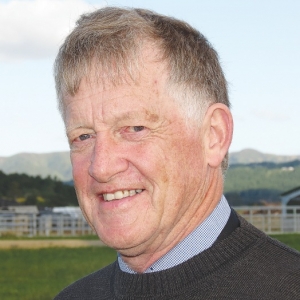The director of Massey University’s Fertiliser and Lime Research Centre (FLRC), Professor Mike Hedley says while intensive farming puts pressure on New Zealand soils he believes they are presently capable of handling that pressure.
Speaking to Rural News at the annual FLRC conference at Massey last week, Hedley said that, in general, soils on lowlands or rolling hills can take the pressure – except in one or two small areas.
Meanwhile, pressure on soils will decline as regional council water quality rules start to take effect. These are likely to limit stock numbers, leading to less degradation of soils.
Hedley says New Zealand generally treats pasture soils on the lowlands and rolling terraces very well. Pasture provides energy for the soil and for the livestock that graze it.
“Perhaps there are a few soils where we might do a bit of treading damage in winter but we have all the technology to improve that. This is the classical area in New Zealand that we don’t do too well.”
The decision many years ago to plant pasture on steep slopes is now causing sediment to erode from hillsides into rivers, one of New Zealand’s biggest water quality problems.
“It can take 25-30 years for a raw slip to regenerate a topsoil. If that was on a productive area of a farm and you wanted to regenerate it I think we have the technologies to renovate them faster.
“But of course, the idea now is to identify those areas and plant them with poplars or commercial forests, so that’s probably the solution and it will lead to be more land use change.”
Hedley sees different problems arising with soils used for cropping and commercial vegetable growing.
“With arable farming the key thing in a lot of our fine-texture soils is that their structure is maintained by soil organic matter. All arable programmes, in respect of good agricultural practice, should have a renovation phase when the soils are put back in pasture.
“This pasture pumps organic matter into the soil which helps the structure. It enables air to move in and out of the soil, and water to drain freely from the soil…. Good agricultural practice focuses on putting pasture into rotation.”
More education on how to manage soil is needed, Hedley says. A lot of science is available but people need their memories ‘refreshed’ about the practice. This will happen in part with new environmental regulations as farmers are forced to look more closely at how they manage land.



















